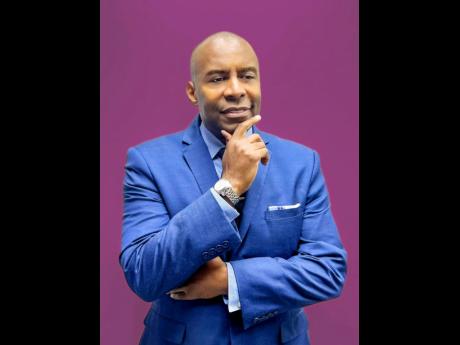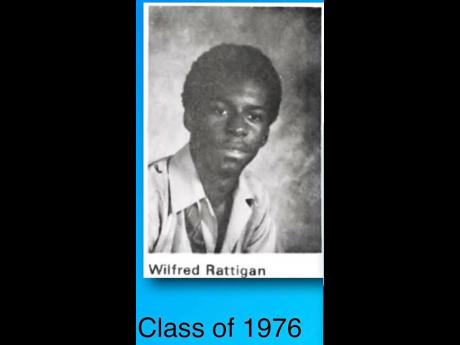Rattigan’s journey from the slums of Jamaica
Before he was four years old, Wilfred Rattigan lost count of the number of times his family had to relocate from one tenement yard to another. Lincoln Avenue, Maxfield Avenue, Waltham Park Road, Whitfield Town, Olympic Gardens and Waterhouse are...
Before he was four years old, Wilfred Rattigan lost count of the number of times his family had to relocate from one tenement yard to another.
Lincoln Avenue, Maxfield Avenue, Waltham Park Road, Whitfield Town, Olympic Gardens and Waterhouse are just a few of the tough “forgotten” Jamaican communities he called home in the early 1960s.
There was no explanation for this nomadic life, but looking back he said the reasons were evident.
“You have a lot of people living in one yard using one or two bathrooms, one kitchen and everybody’s business is everybody’s business,” he recounted during a Sunday Gleaner interview on Friday from his home in the United States.
“People constantly move because they can’t get along.”
For a good night’s meal, Rattigan devised a very simple plan: show up around dinner time at different neighbours’ homes.
“Mi time the pot, so to speak. I would just show up while the food a share and dem would a say ‘Ratty, you want some food’ and mi say ‘yeah, man’ and mi would a go back the next day,” he recalled.
“But I made it a habit never to go to the same house three days straight for food. Just as they were getting tired a mi and expect mi fi come the third day, mi find another house.”
Still, Rattigan did not realise how “poor” his family was until he matriculated to Meadowbrook High School and started mingling with other children from middle and upper middle class families.
Suffering seemed ‘normal’
Suffering seemed “normal”, he said, because everybody else around him was struggling.
But a visit to one of his friend’s home illuminated his plight.
“They had a [household] helper and I remember she would ask what they wanted for dinner?” he recounted.
“And I would say to myself ‘bwoy, dem people yah have it easy’. Man come home an have a choice while mi inna the ghetto whatever dem cook that’s it and sometimes dem never cook.”
PROMISE OF A BETTER LIFE
Life was supposed to be different for Rattigan and his two siblings.
Before he started attending Meadowbrook High, he said his mother gathered her children in a room inside the board house they called home and broke the news that she was migrating to Canada “to make a better life for them”.
Not long after, his father went to join his mother in Canada, but the promise of a better life proved fleeting at the time.
Rattigan was soon bouncing between homes in Waterhouse again, a situation that worsened when his father was deported.
“He became an alcoholic and there were times when he got drunk and just took his frustration out on me. He would beat the living daylights outta me…I actually slept in trees, on verandah and out in the yard,” he shared with The Sunday Gleaner.
There were times, too, that he slept on Spanish Town Road and did not attend classes at Meadowbrook for weeks.
Things began to take an upward turn, he said, after his mother relocated to the United States and reunited her family there.
A 17-year-old Rattigan was the first to rejoin his mother in 1977.
But New York City, where the family settled, initially reminded him of the struggles in Waterhouse.
“I was sleeping in a living room on a sofa bed with two grown men. We continued like that for a while and then I kept moving and moving,” he said, admitting that he later found out that his mother was a “maid”.
Rattigan said his mother later rented a basement apartment and at the age of 19 years old “that was the first time I had my own room”.
“First time that I had a bed and I was the only person sleeping on it. Every other time it was three or four people on the bed and you had to sleep this way or that way,” he shared.
Rattigan said after migrating to the US, a dream he harboured at Meadowbrook High of becoming an attorney still lingered and that led him to enrol at John Jay College of Criminal Justice.
He then attended Howard University law school before returning to New York City to work as an investigator before joining the Federal Bureau of Investigation (FBI) in 1987.
DESIRE TO GIVE BACK
After a near 30-year career in law enforcement that took him to different parts of the globe, Rattigan shared that he was still passionate about his homeland, with a strong desire to help relatives and friends still residing in his old community who he said are “dirt poor”.
“They are still forgotten and somebody has to speak on their behalf because they have been beaten into submission. I have the skill set to make a difference in their lives,” he told The Sunday Gleaner.
Rattigan’s first foray into giving back was his decision to apply for the job of commissioner of police, at the urging of other Jamaican professionals in the diaspora, several years ago.
Rattigan said he offered his extensive law enforcement experience to the two main political parties in Jamaica for free and was rejected.
He was not shortlisted in his three attempts to become police commissioner and has now given up on that idea, but still wants to serve his country in some capacity.
The man who considers himself a true-blooded Jamaican is now at the centre of a lawsuit he filed in the Supreme Court in April regarding donations from corporate Jamaica towards Foreign Affairs Minister Kamina Johnson Smith’s failed 2022 bid for the post of Commonwealth secretary-general.


